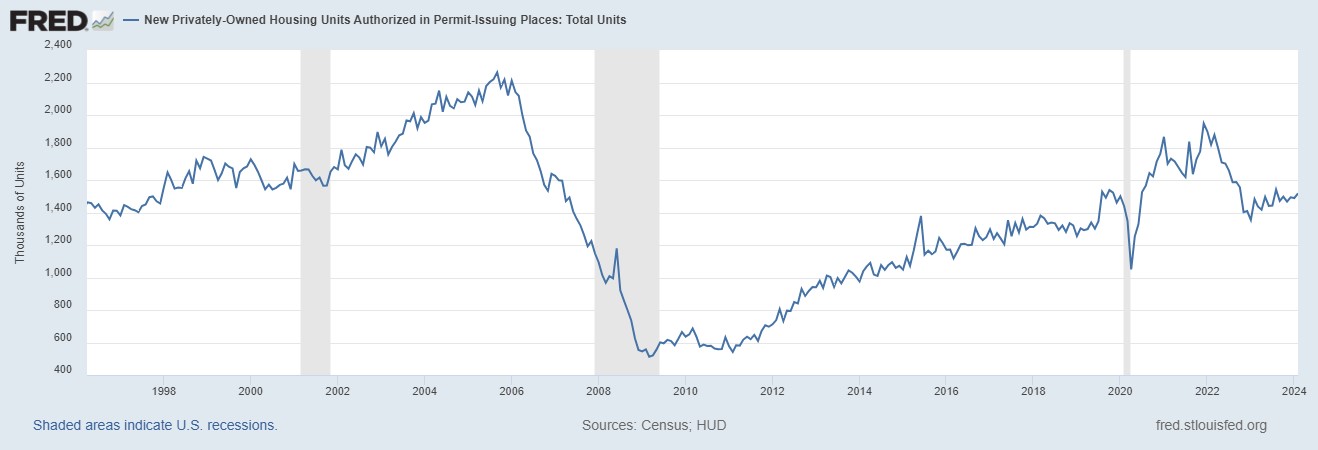Uncategorized
Black Knight Originations Market Monitor: Purchase Locks Fall 22% in November Despite Lower Rates; Seasonal Slowdown Amplified by Affordability, Inventory Pressures
Black Knight Originations Market Monitor: Purchase Locks Fall 22% in November Despite Lower Rates; Seasonal Slowdown Amplified by Affordability, Inventory Pressures
PR Newswire
JACKSONVILLE, Fla., Dec. 12, 2022
The Optimal Blue Mortgage Market Indi…

Black Knight Originations Market Monitor: Purchase Locks Fall 22% in November Despite Lower Rates; Seasonal Slowdown Amplified by Affordability, Inventory Pressures
PR Newswire
JACKSONVILLE, Fla., Dec. 12, 2022
- The Optimal Blue Mortgage Market Indices from Black Knight showed 30-year rates fell 48 basis points in the month to finish November at 6.58%; but still 3.3 percentage points higher than this time last year
- Despite the rate reduction, overall lock volumes dropped 21.5% in November and are now down 39% over the past three months and 68% off last year's level
- All loan purposes were off by similar amounts, with purchase locks down 22%, rate/term refis down 17% and cash-out refis down 18%, with total refinance locks making up 15% of the month's overall activity
- Headwinds from both interest rates and affordability continue to challenge purchase lending, with the dollar volume of such locks down 37% over the past three months and more than 50% from November 2021
- Purchase lock counts -- which exclude the impact of rising home prices -- were down 48% year over year and 27% compared to pre-pandemic levels in 2019
- Credit scores for cash-out refinances fell 4 points to 686 (down 40 points over the past 12 months) but remained unchanged for purchase and rate/term refinance transactions
- Adjustable-rate mortgages (ARMs), which surged amid rising rates, pulled back slightly to 10% for the month from 13% in October as the interest rate dip pushed demand back toward fixed rates
- Nonconforming locks (including jumbo and expanded guidelines) as a share of the month's total volume continued to fall in November, with conforming and FHA locks picking up market share as a result
- Both the average purchase price and average loan amount fell in November to $414,000 (-1.3% M/M) and $340,000 (-2.2% M/M), respectively
JACKSONVILLE, Fla., Dec. 12, 2022 /PRNewswire/ -- Today, Black Knight, Inc. (NYSE:BKI) announced the release of its latest Originations Market Monitor report, looking at mortgage origination data through November month-end. Leveraging daily rate lock data from the Black Knight Optimal Blue PPE -- mortgage lending's most widely used pricing engine -- the Originations Market Monitor provides the industry's earliest and most comprehensive view of origination activity.
"Mortgage rates pulled back slightly in November based on what the market perceived as good inflation news," said Scott Happ, president of Optimal Blue, a division of Black Knight. "The spread between mortgage rates and the 10-year Treasury yield narrowed by 13 basis points during the month to 283 basis points in a sign that investors and lenders may be seeking to accelerate the impact of falling rates. But, despite the improvement in rates, lock activity remained subdued."
The month's pipeline data showed overall rate lock dollar volume down 21.5% month over month, remaining at the lowest level since February 2019. The across-the-board decline was driven by a 22% drop in purchase locks, reflecting the strong impact of seasonality, the long Thanksgiving holiday weekend, and the lack of housing inventory. Refinance activity continued to fall by double digits, with cash-outs now down 86% and rate/term down 93% from November 2021. Combined, refinance activity made up 15% of the month's lock activity, a near-record low share. When excluding the impact of record home price growth on volumes over the last several years by looking at the raw number lock counts, the data shows them down 48% year over year and 27% compared to pre-pandemic levels in 2019.
"While we would normally expect some seasonal pullback in activity in November, we are also seeing exceptionally strong headwinds in purchase activity from continued affordability challenges and a refinance market that has dwindled to all but nonexistent levels," Happ continued. "Stalled inventory and rates nearly twice what they were a year ago are combining to negate the benefits of recent home price and rate declines from an affordability perspective."
Each month's Originations Market Monitor provides high-level origination metrics for the U.S. and the top 20 metropolitan statistical areas by share of total origination volume. Much more detail on November's origination activity can be found in the full Black Knight Originations Market Monitor report.
About Black Knight
Black Knight, Inc. (NYSE:BKI) is an award-winning software, data and analytics company that drives innovation in the mortgage lending and servicing and real estate industries, as well as the capital and secondary markets. Businesses leverage our robust, integrated solutions across the entire homeownership life cycle to help retain existing customers, gain new customers, mitigate risk and operate more effectively.
Our clients rely on our proven, comprehensive, scalable products and our unwavering commitment to delivering superior client support to achieve their strategic goals and better serving their customers. For more information on Black Knight, please visit www.blackknightinc.com/.
For more information: | |
Michelle Kersch | Mitch Cohen |
904.854.5043 | 704.890.8158 |
View original content to download multimedia:https://www.prnewswire.com/news-releases/black-knight-originations-market-monitor-purchase-locks-fall-22-in-november-despite-lower-rates-seasonal-slowdown-amplified-by-affordability-inventory-pressures-301699756.html
SOURCE Black Knight, Inc.
Uncategorized
Apartment permits are back to recession lows. Will mortgage rates follow?
If housing leads us into a recession in the near future, that means mortgage rates have stayed too high for too long.

In Tuesday’s report, the 5-unit housing permits data hit the same levels we saw in the COVID-19 recession. Once the backlog of apartments is finished, those jobs will be at risk, which traditionally means mortgage rates would fall soon after, as they have in previous economic cycles.
However, this is happening while single-family permits are still rising as the rate of builder buy-downs and the backlog of single-family homes push single-family permits and starts higher. It is a tale of two markets — something I brought up on CNBC earlier this year to explain why this trend matters with housing starts data because the two marketplaces are heading in opposite directions.
The question is: Will the uptick in single-family permits keep mortgage rates higher than usual? As long as jobless claims stay low, the falling 5-unit apartment permit data might not lead to lower mortgage rates as it has in previous cycles.
From Census: Building Permits: Privately‐owned housing units authorized by building permits in February were at a seasonally adjusted annual rate of 1,518,000. This is 1.9 percent above the revised January rate of 1,489,000 and 2.4 percent above the February 2023 rate of 1,482,000.
When people say housing leads us in and out of a recession, it is a valid premise and that is why people carefully track housing permits. However, this housing cycle has been unique. Unfortunately, many people who have tracked this housing cycle are still stuck on 2008, believing that what happened during COVID-19 was rampant demand speculation that would lead to a massive supply of homes once home sales crashed. This would mean the builders couldn’t sell more new homes or have housing permits rise.
Housing permits, starts and new home sales were falling for a while, and in 2022, the data looked recessionary. However, new home sales were never near the 2005 peak, and the builders found a workable bottom in sales by paying down mortgage rates to boost demand. The first level of job loss recessionary data has been averted for now. Below is the chart of the building permits.
On the other hand, the apartment boom and bust has already happened. Permits are already back to the levels of the COVID-19 recession and have legs to move lower. Traditionally, when this data line gets this negative, a recession isn’t far off. But, as you can see in the chart below, there’s a big gap between the housing permit data for single-family and five units. Looking at this chart, the recession would only happen after single-family and 5-unit permits fall together, not when we have a gap like we see today.
From Census: Housing completions: Privately‐owned housing completions in February were at a seasonally adjusted annual rate of 1,729,000.
As we can see in the chart below, we had a solid month of housing completions. This was driven by 5-unit completions, which have been in the works for a while now. Also, this month’s report show a weather impact as progress in building was held up due to bad weather. However, the good news is that more supply of rental units will mean the fight against rent inflation will be positive as more supply is the best way to deal with inflation. In time, that is also good news for mortgage rates.
Housing Starts: Privately‐owned housing starts in February were at a seasonally adjusted annual rate of 1,521,000. This is 10.7 percent (±14.2 percent)* above the revised January estimate of 1,374,000 and is 5.9 percent (±10.0 percent)* above the February 2023 rate of 1,436,000.
Housing starts data beat to the upside, but the real story is that the marketplace has diverged into two different directions. The apartment boom is over and permits are heading below the COVID-19 recession, but as long as the builders can keep rates low enough to sell more new homes, single-family permits and starts can slowly move forward.
If we lose the single-family marketplace, expect the chart below to look like it always does before a recession — meaning residential construction workers lose their jobs. For now, the apartment construction workers are at the most risk once they finish the backlog of apartments under construction.

Overall, the housing starts beat to the upside. Still, the report’s internals show a marketplace with early recessionary data lines, which traditionally mean mortgage rates should go lower soon. If housing leads us into a recession in the near future, that means mortgage rates have stayed too high for too long and restrictive policy by the Fed created a recession as we have seen in previous economic cycles.
The builders have been paying down rates to keep construction workers employed, but if rates go higher, it will get more and more challenging to do this because not all builders have the capacity to buy down rates. Last year, we saw what 8% mortgage rates did to new home sales; they dropped before rates fell. So, this is something to keep track of, especially with a critical Federal Reserve meeting this week.
recession covid-19 fed federal reserve home sales mortgage rates recessionUncategorized
One more airline cracks down on lounge crowding in a way you won’t like
Qantas Airways is increasing the price of accessing its network of lounges by as much as 17%.

Over the last two years, multiple airlines have dealt with crowding in their lounges. While they are designed as a luxury experience for a small subset of travelers, high numbers of people taking a trip post-pandemic as well as the different ways they are able to gain access through status or certain credit cards made it difficult for some airlines to keep up with keeping foods stocked, common areas clean and having enough staff to serve bar drinks at the rate that customers expect them.
In the fall of 2023, Delta Air Lines (DAL) caught serious traveler outcry after announcing that it was cracking down on crowding by raising how much one needs to spend for lounge access and limiting the number of times one can enter those lounges.
Related: Competitors pushed Delta to backtrack on its lounge and loyalty program changes
Some airlines saw the outcry with Delta as their chance to reassure customers that they would not raise their fees while others waited for the storm to pass to quietly implement their own increases.
Shutterstock
This is how much more you'll have to pay for Qantas lounge access
Australia's flagship carrier Qantas Airways (QUBSF) is the latest airline to announce that it would raise the cost accessing the 24 lounges across the country as well as the 600 international lounges available at airports across the world through partner airlines.
More Travel:
- A new travel term is taking over the internet (and reaching airlines and hotels)
- The 10 best airline stocks to buy now
- Airlines see a new kind of traveler at the front of the plane
Unlike other airlines which grant access primarily after reaching frequent flyer status, Qantas also sells it through a membership — starting from April 18, 2024, prices will rise from $600 Australian dollars ($392 USD) to $699 AUD ($456 USD) for one year, $1,100 ($718 USD) to $1,299 ($848 USD) for two years and $2,000 AUD ($1,304) to lock in the rate for four years.
Those signing up for lounge access for the first time also currently pay a joining fee of $99 AUD ($65 USD) that will rise to $129 AUD ($85 USD).
The airline also allows customers to purchase their membership with Qantas Points they collect through frequent travel; the membership fees are also being raised by the equivalent amount in points in what adds up to as much as 17% — from 308,000 to 399,900 to lock in access for four years.
Airline says hikes will 'cover cost increases passed on from suppliers'
"This is the first time the Qantas Club membership fees have increased in seven years and will help cover cost increases passed on from a range of suppliers over that time," a Qantas spokesperson confirmed to Simple Flying. "This follows a reduction in the membership fees for several years during the pandemic."
The spokesperson said the gains from the increases will go both towards making up for inflation-related costs and keeping existing lounges looking modern by updating features like furniture and décor.
While the price increases also do not apply for those who earned lounge access through frequent flyer status or change what it takes to earn that status, Qantas is also introducing even steeper increases for those renewing a membership or adding additional features such as spouse and partner memberships.
In some cases, the cost of these features will nearly double from what members are paying now.
stocks pandemicUncategorized
Star Wars icon gives his support to Disney, Bob Iger
Disney shareholders have a huge decision to make on April 3.

Disney's (DIS) been facing some headwinds up top, but its leadership just got backing from one of the company's more prominent investors.
Star Wars creator George Lucas put out of statement in support of the company's current leadership team, led by CEO Bob Iger, ahead of the April 3 shareholders meeting which will see investors vote on the company's 12-member board.
"Creating magic is not for amateurs," Lucas said in a statement. "When I sold Lucasfilm just over a decade ago, I was delighted to become a Disney shareholder because of my long-time admiration for its iconic brand and Bob Iger’s leadership. When Bob recently returned to the company during a difficult time, I was relieved. No one knows Disney better. I remain a significant shareholder because I have full faith and confidence in the power of Disney and Bob’s track record of driving long-term value. I have voted all of my shares for Disney’s 12 directors and urge other shareholders to do the same."
Related: Disney stands against Nelson Peltz as leadership succession plan heats up
Lucasfilm was acquired by Disney for $4 billion in 2012 — notably under the first term of Iger. He received over 37 million in shares of Disney during the acquisition.
Lucas' statement seems to be an attempt to push investors away from the criticism coming from The Trian Partners investment group, led by Nelson Peltz. The group, owns about $3 million in shares of the media giant, is pushing two candidates for positions on the board, which are Peltz and former Disney CFO Jay Rasulo.
Peltz and Co. have called out a pair of Disney directors — Michael Froman and Maria Elena Lagomasino — for their lack of experience in the media space.
Related: Women's basketball is gaining ground, but is March Madness ready to rival the men's game?
Blackwells Capital is also pushing three of its candidates to take seats during the early April shareholder meeting, though Reuters has reported that the firm has been supportive of the company's current direction.
Disney has struggled in recent years amid the changes in media and the effects of the pandemic — which triggered the return of Iger at the helm in late 2022. After going through mass layoffs in the spring of 2023 and focusing on key growth brands, the company has seen a steady recovery with its stock up over 25% year-to-date and around 40% for the last six months.
Related: Veteran fund manager picks favorite stocks for 2024
stocks pandemic recovery-

 Spread & Containment7 days ago
Spread & Containment7 days agoIFM’s Hat Trick and Reflections On Option-To-Buy M&A
-

 Uncategorized4 weeks ago
Uncategorized4 weeks agoAll Of The Elements Are In Place For An Economic Crisis Of Staggering Proportions
-

 International2 weeks ago
International2 weeks agoEyePoint poaches medical chief from Apellis; Sandoz CFO, longtime BioNTech exec to retire
-

 Uncategorized1 month ago
Uncategorized1 month agoCalifornia Counties Could Be Forced To Pay $300 Million To Cover COVID-Era Program
-

 Uncategorized4 weeks ago
Uncategorized4 weeks agoApparel Retailer Express Moving Toward Bankruptcy
-

 Uncategorized1 month ago
Uncategorized1 month agoIndustrial Production Decreased 0.1% in January
-

 International2 weeks ago
International2 weeks agoWalmart launches clever answer to Target’s new membership program
-

 Uncategorized1 month ago
Uncategorized1 month agoRFK Jr: The Wuhan Cover-Up & The Rise Of The Biowarfare-Industrial Complex





















